The youngest of the film studios that GLAAD tracks, Lionsgate was originally formed in Vancouver in 1997 but has produced some of Hollywood’s biggest blockbusters in recent years. Since its inception, the company has grown significantly through acquisitions of other companies, including Summit Entertainment in 2012, which produced the highly profitable Twilight film franchise.
The very first film Lionsgate released was The Pillow Book (1997), in which Ewan McGregor costarred as a bisexual man, and the company has had quite a few other notable LGBT-inclusive films since. These include Gods and Monsters (1998), But I’m a Cheerleader (2000), Urbania (2000), Lost and Delirious (2001), All Over the Guy (2001), Happy Endings (2005), Precious (2009), Albert Nobbs (2012), and The Perks of Being a Wallflower (2012) through Summit Entertainment.
A LA MALA
Widest theatrical release: 384 theaters
This Spanish-language romantic comedy follows Mala, an actress who works as a seductress for extra cash, hired by women to flirt with their partners in a test of the men’s loyalty. She eventually comes to fall in love with someone she was hired to test, who ends their relationship after learning her secret. His assistant and best friend, Alvaro, is openly gay and is clearly flirtatious with several men throughout the film though he never gets a romance of his own. In the end, Alvaro leads the film’s climax as he provides Mala an opportunity to apologize and confess her true feelings. Despite falling into the overused “gay assistant” trope, Alvaro is depicted as an integral character, confident in himself, and accepted by the people in his life. However, the lack of a romantic interest for him in comparison to all the straight central characters was a missed opportunity.
 AMERICAN ULTRA
AMERICAN ULTRA
Widest theatrical release: 2778 theaters
Interestingly, the stoner-spy thriller American Ultra positioned a gay CIA agent as the film’s moral center. In a genre that often only includes LGBT characters as villains or one-note stereotypes, it’s refreshing to see a gay character given substance and the same type of humanizing traits as non- LGBT characters. Agent Petey Douglas breaks protocol to provide his former boss with weapons to protect herself and sleeper agent Mike, and later disregards direct orders, which would have resulted in many civilian deaths and reports the situation to superiors. Petey’s orientation is established very organically as just part of his life; he receives a text message with a picture of his partner and their dog asking when he is coming home and saying they miss him. In a workplace-set film that could easily have left out any hint of a personal life, it is notable that the creators made the choice to include an LGBT character as part of the film’s world.
 CHILD 44
CHILD 44
Widest theatrical release: 510 theaters
This film, about the secret hunt for a sadistic serial killer in the 1950s Stalin-controlled USSR, includes a brief subplot about the treatment of gay men at that time. Train station employee Alexander stumbles upon the body of the most recent victim while meeting in the woods with his lover. The police threaten Alexander with jail time and social ruin unless he gives them a list naming “men in this town who have had sex with other men. Men who have had sex with younger men, with boys.” Shortly after providing the list (leading to a montage of arrests), Alexander dies by suicide. The police’s wrongful conflation of gay men and pedophilia was indicative of the time of Stalin’s regime, during which gay men were considered mentally ill and therefore people of interest to be questioned in the case. Overall, the scene has no real effect on the plot.
 COOTIES
COOTIES
Widest theatrical release: 29 theaters
Jack McBrayer starred as a member of the ensemble cast of this horror-comedy as Tracey Lacey, one of the teachers at a small town Ohio elementary school who find themselves fighting for their lives after the students are turned into zombies. Lacey is a completely undeveloped character whose only dialogue serves to further the ongoing “is he/isn’t he” gay assumptions and jokes. Late in the film, Lacey does come out in response to a speech delivered before the teachers decide to fight their way out, with one of the other instructors responding that she knew all along. This type of “humor” is both extremely worn-out and simply unamusing.
 THE DUFF
THE DUFF
Widest theatrical release: 2622 theaters
This teen comedy about the danger of labels included a gay character who appeared solely for a seconds-long punchline. While establishing mean girl Madison as the most popular girl at school, narrator and lead character Bianca says that even gay men want to sleep with her, followed by a shot of an effeminate student saying that he would sleep with Madison “but I wouldn’t like it.” A series of bloopers and behind-the-scenes moments play during the film’s final credits, including a scene of two male teachers sharing a messy kiss in a moment played for laughs. These scenes appear even more outdated in a movie which encourages viewers to look beyond superficial labels and stereotypes.
 FREEHELD
FREEHELD
Widest theatrical release: 148 theaters
Freeheld is the only film distributed by a major studio last year to be nominated for a GLAAD Media Award. The feature, starring out actress Ellen Page and Julianne Moore, is based on the 2007 documentary of the same name about New Jersey police Lieutenant Laurel Hester, who fought for her pension benefits to be extended to her partner, Stacie Andree, after Laurel learned she was dying of cancer. Steve Carrell co-stars as Garden State Equality founder Steven Goldstein, who helps rally press around Laurel’s fight, and Luke Grimes is her closeted co-worker Todd. While there are several characters’ stories unfolding at once, Laurel and Stacie remain at the center, as Moore and Page bring such heart to their characters. Freeheld was one of the year’s LGBT film highlights.
KNOCK KNOCK
Widest theatrical release: 22 theaters
This film’s premise revolves around two villainous women, who have a history of seducing well-off middle-aged men into having threesomes with them before burglarizing their homes and blackmailing the men with threats of exposure to their wives. One of the women remarks that she “wants to get comfortable with having threesomes” because she “knows that’s the only way he’ll [future husband] never cheat on me.” Given that these scenes take place in service of the women committing a larger crime, the interactions can be seen as situational rather than indicative of either character’s orientation, so GLAAD did not count the women as either lesbian or bisexual characters. The film also briefly includes Louis, the assistant to the leading man’s wife, who is accidentally killed by the women. When one of the women comes on to him, he replies that she is “barking up the wrong tree” and that he can tell a liar when he sees one. This scene, together with the mannerisms he displays which had some outlets assuming Louis was gay, can be seen as strong hinting on the part of the screenplay, but not ultimately conclusive of his sexual orientation. GLAAD did not count Louis in its tally.
 LOVE THE COOPERS
LOVE THE COOPERS
Widest theatrical release: 2603 theaters
This ensemble drama about a family learning the true meaning of Christmas includes uptight police officer Percy who says he is “only gay in bed.” He later explains that the reason he is so strictly rule abiding – and by implication the reason he remains closeted – is that his mother forced him to behave in traditionally masculine ways as a child. Percy exists solely to further lead character Emma’s story arc by encouraging her to act as the person she would like to become, and never gets any resolution of his own.
 UN GALLO CON MUCHO HUEVOS
UN GALLO CON MUCHO HUEVOS
Widest theatrical release: 616 theaters
This Spanish-language animated family film (released in the U.S. as Huevos: Little Rooster’s Egg-cellent Adventure) is the third in the franchise following chicken Toto and his group of egg friends. The film cracked the box office top 10 during its opening weekend, but disappointingly included an outdated stereotypical character meant solely for the audience to laugh at and several instances of anti-gay slurs. Fabian is an egg who works as a makeup artist at a rooster-fighting club owned by El Padrino (The Godfather). He wears a painted-on pink top, exaggerated makeup, and a red scarf. While Fabian has less than one minute of total screen time, every scene is designed for audiences to get a cheap laugh at his flamboyance and over-the-top delivery. While we would like to see animated film catch up to the LGBT representation featured in animated TV last year, this is one “character” that would have been better left on the editing floor.

Roadside Attractions, founded in 2003 by Howard Cohen and Eric d’Arbeloff, specializes largely in independent films. Then in 2007, Lionsgate bought a portion of the company. Notable LGBT-inclusive films previously released by the studio include I Love You Phillip Morris (2010), Albert Nobbs (2012), Dear White People, and The Skeleton Twins (2014).
 CHI-RAQ
CHI-RAQ
Widest theatrical release: 305 theaters
Spike Lee’s satirical musical, based on the ancient Greek comedy Lysistrata, follows the women of Chicago as they withhold sex from their gangster boyfriends in hopes of ending street violence. The film included brothel runner Big Thelma tossing out the line “good thing I’m a d*ke,” implying that the strike does not affect her. In later scenes, an older man notes that even those on the “down low” have sworn celibacy, before saying he does not know how he knew that when questioned by the rest of the group. This inclusion-as-a-punchline remains par for the course for too many comedies.
 STONEWALL
STONEWALL
Widest theatrical release: 129 theaters
It’s rare for a Hollywood film to focus entirely on LGBT history, but 2015’s Stonewall fumbled the opportunity to shed light on a pivotal moment and went on to fail at the box office. The 1969 riots at the Stonewall Inn in New York City were a series of demonstrations by members of the LGBT community fighting back against a police force that routinely persecuted LGBT people. Stonewall instead told a coming-of-age story about fictional gay character Danny, a naïve Midwestern teen who arrives penniless in New York City after being kicked out of his home, with a vague sketch of the riots as a backdrop to his tale. Once he arrives in the city, Danny meets gender non-conforming homeless teen Ray, who also uses the name Ramona. Ray introduces Danny to a group of queer youth who are struggling to survive on the streets, and to the Stonewall Inn – the only gay bar that allows dancing. Finally, fed up by the corrupt cops raiding the mafia-owned bar, Danny throws the first brick through a window and provokes the riots. The film has been widely criticized for telling a whitewashed version of the riots, erasing many of the real stories of LGBT people of color and women who were instrumental in the rebellion, in order to focus on the fictitious character of Danny. Sadly, audiences may have been left unaware that actual people inspired several of the characters – including Ramona, loosely based on Sylvia Rivera, and early trans advocate Marsha P. Johnson, who appears in the film, but only in a minor role. Their erasure from this turning point in LGBT history was unjustified and unnecessarily revisionist.


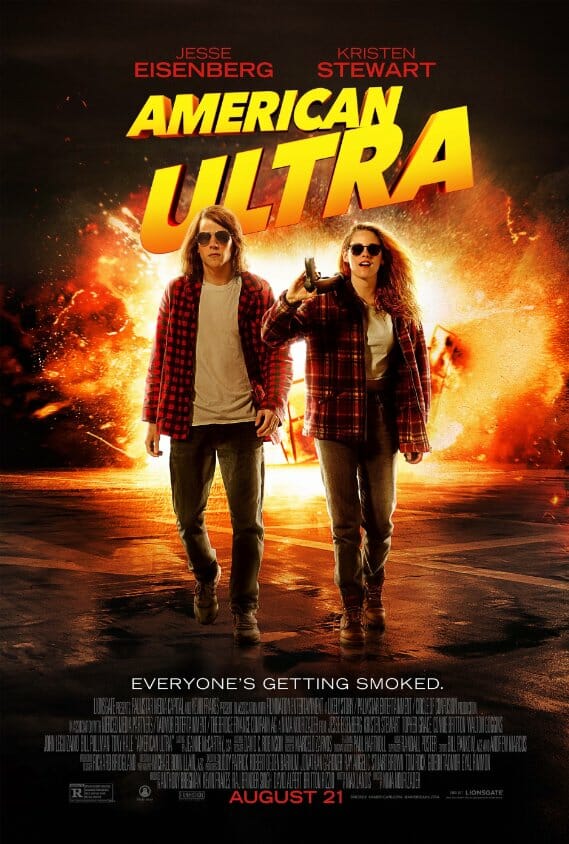 AMERICAN ULTRA
AMERICAN ULTRA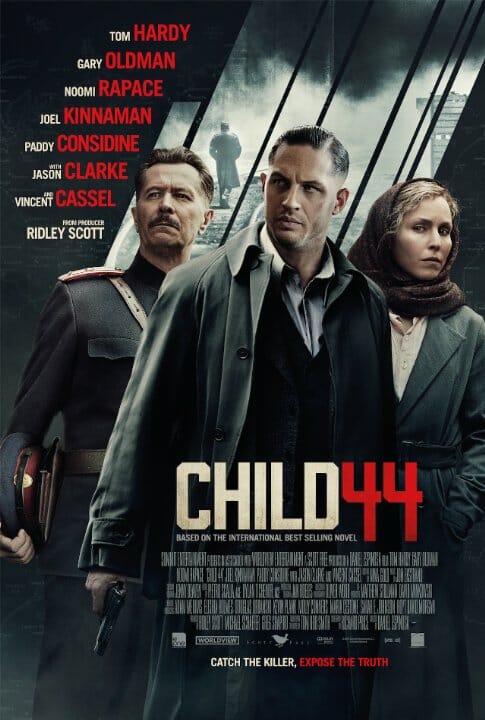 CHILD 44
CHILD 44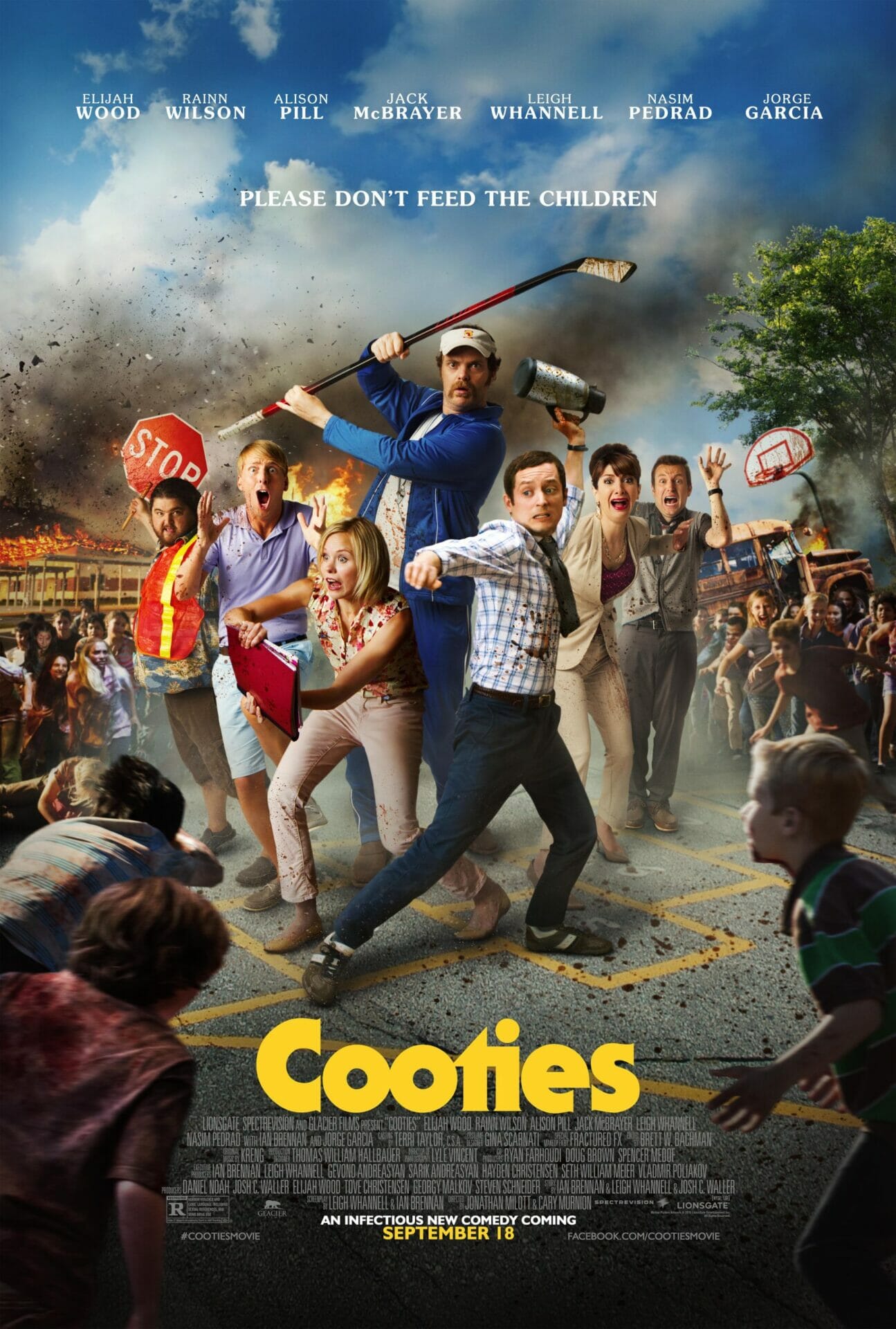 COOTIES
COOTIES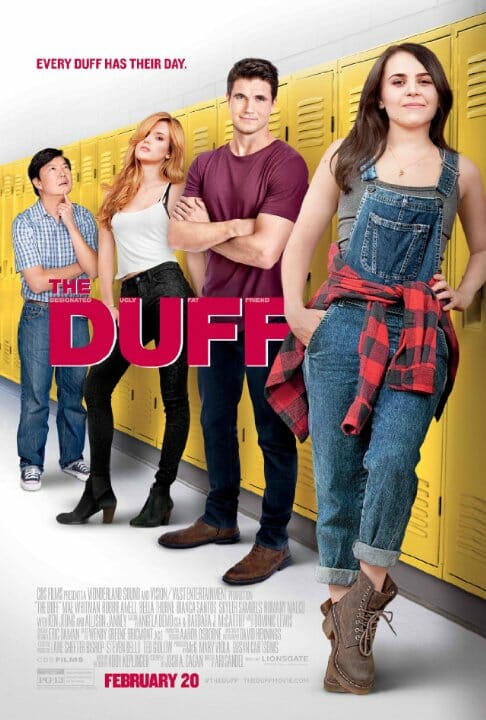 THE DUFF
THE DUFF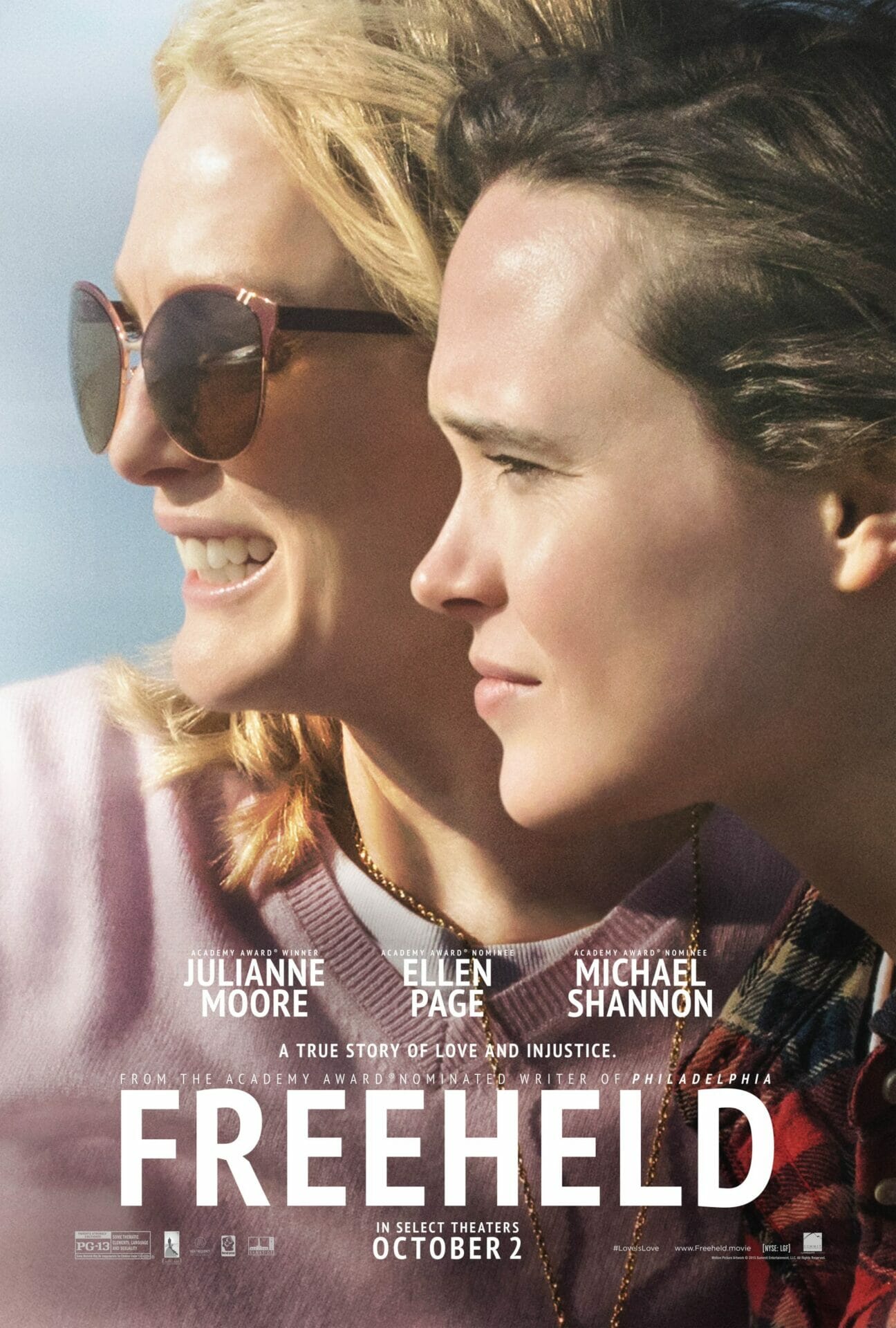 FREEHELD
FREEHELD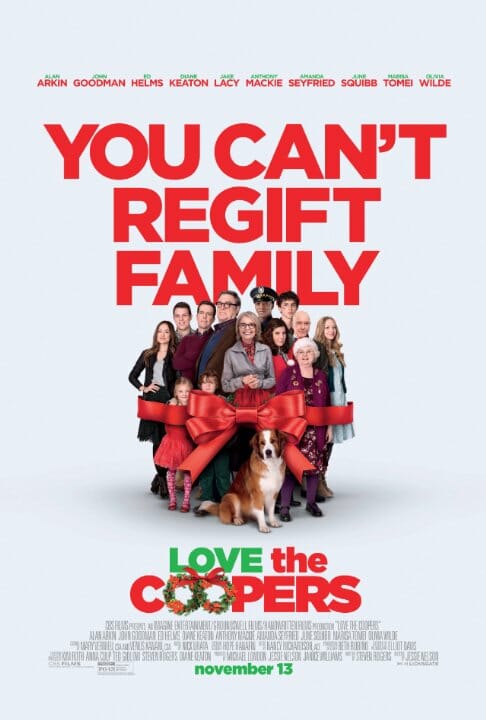 LOVE THE COOPERS
LOVE THE COOPERS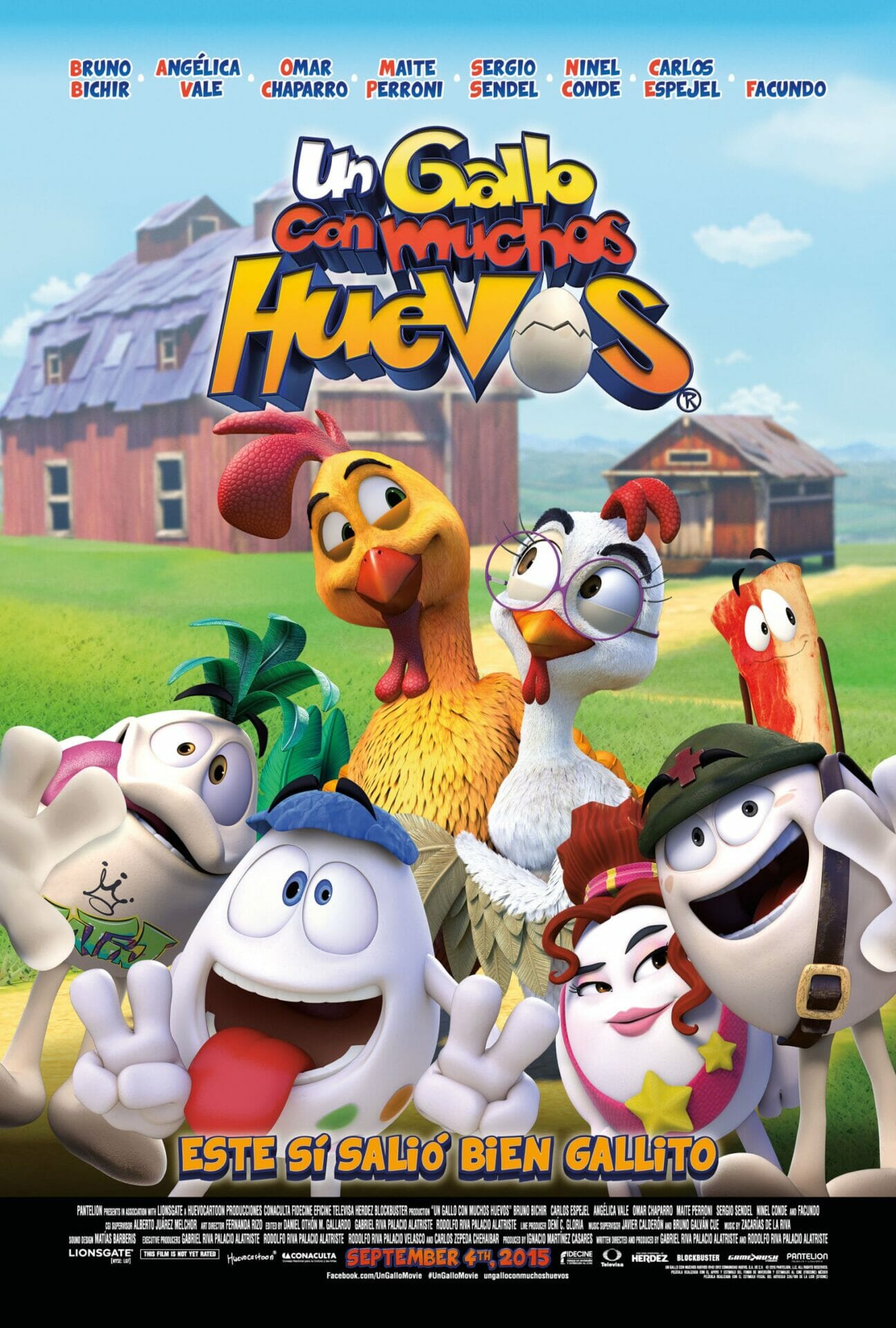 UN GALLO CON MUCHO HUEVOS
UN GALLO CON MUCHO HUEVOS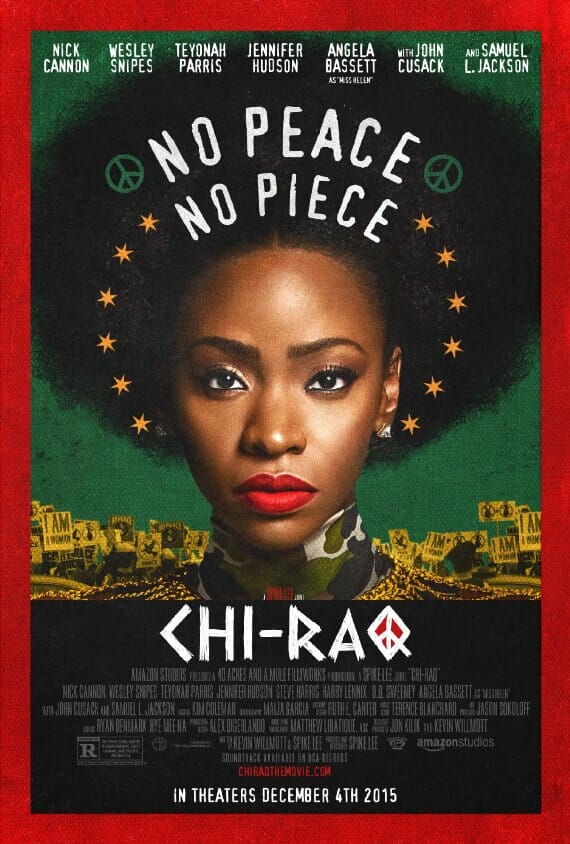 CHI-RAQ
CHI-RAQ STONEWALL
STONEWALL










